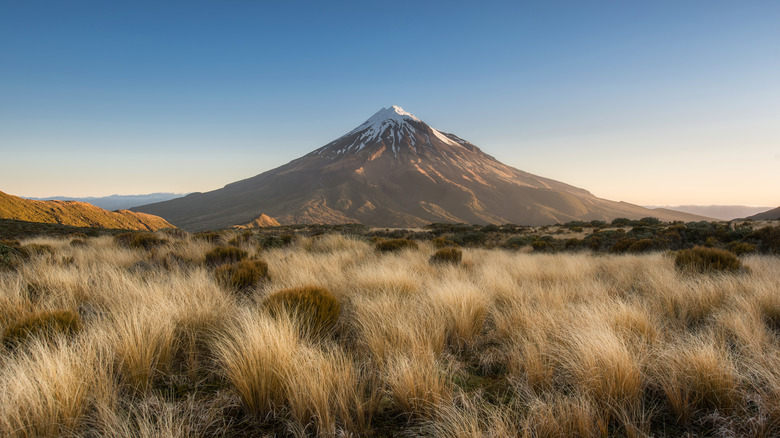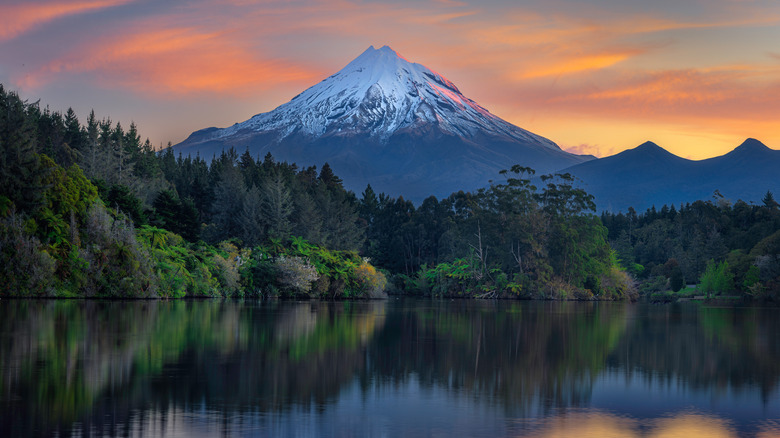A New Zealand Mountain Is Legally Recognized As A Person
Mount Taranaki, one of New Zealand's most famous and breathtaking peaks, is not just a mountain anymore — at least not legally. As of January 2025, New Zealand's most-climbed mountain is recognized as a person, meaning it has the same rights and protections as any person under the law. With this, it also got a new legal name, Te Kāhui Tupua.
Taranaki Maunga (Mount Taranaki) is very culturally important to the Māori people and is considered an Indigenous ancestor. The government first promised to give the mountain this designation back in 2017. The bill recently passed — The Taranaki Maunga Collective Redress Bill — acknowledges the mountain was stolen from the Māori by New Zealand's colonizers. Its former name of Mount Egmont, the name the colonizers gave it, is officially retired.
For centuries, colonial policies ignored Indigenous beliefs, stripping Māori of both their land and their say in how sacred places were treated. By granting Taranaki Maunga legal personhood, the government is protecting the mountain while also acknowledging Māori traditions in a way that holds real legal weight. The bill also acknowledges injustices against Māori communities, and a government official said he looked forward to delivering an official Crown apology in person at the mountain.
What does personhood mean for Taranaki Maunga?
So what does it mean for a mountain to be legally recognized as a person? It doesn't mean Taranaki Maunga can get a passport or drivers license, but it does mean that it can participate in litigation and own property, just like a person. A managing group created by the local iwi (tribes) and members of New Zealand's conservation minister will make decisions about its care, conservation, tourism, and land use. But you will still be able to hike the mountain — one of the most beautiful hikes in New Zealand.
The personhood applies beyond just Taranaki Maunga and also to its nearby peaks, including Pouākai and Kaitake, and all the surrounding lands. This is a big win for the Māori, who have been trying to take back ownership of the mountain since the 1970s.
New Zealand, which some consider to be the world's eighth continent, has granted personhood to geographic features before — for example, the Te Urewera forest was deemed a person in 2014, and the Whanganui river gained the legal status in 2017. With all of these natural sites, the public is still welcome to visit and enjoy them. The difference with their personhood is that the management and protection of them are finally back in the hands of the Indigenous tribes who lived there first. If you're planning to visit any of these natural-wonders-slash-people, be sure to check out our guide on the best budget-friendly way to get around New Zealand.

